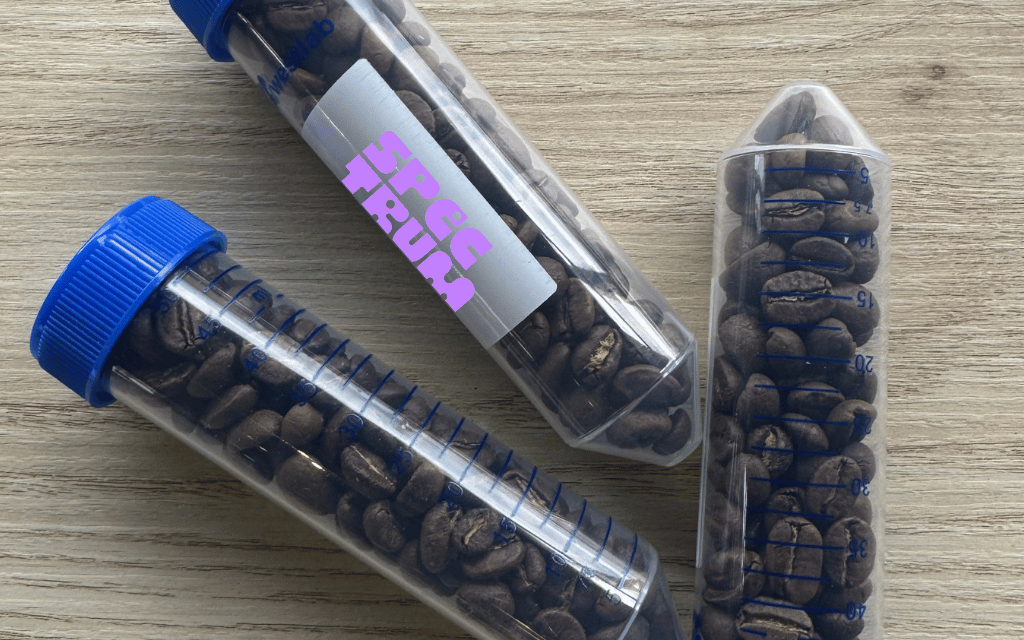
The Art of Freezing Coffee Beans: A Guide for Coffee Lovers
In recent years, freezing coffee beans has become a popular method among coffee enthusiasts looking to keep their beans at peak freshness for longer. This approach, while still fairly new to the broader coffee community, is proving to be a great way to maintain the vibrant flavours and aromas of high-quality beans.
At Spectrum Coffee, we love sharing tips to help you get the most out of your coffee. That’s why we’ve put together this guide to help you understand how freezing can extend your coffee's lifespan while preserving its unique flavour profile. With insights from experienced baristas and roasters, let’s dive into the origins, benefits, and best practices for freezing coffee beans.
The practice of freezing coffee to maintain freshness started in the world of specialty coffee. Driven by the desire to preserve carefully crafted flavours, baristas and roasters discovered that freezing coffee at its peak could slow down the ageing process without compromising taste. This method allows beans to stay fresh and full-flavoured for months—even up to a year—without significant loss of quality.
One of the biggest advantages of freezing coffee is that it captures the beans at their best, allowing you to enjoy your coffee exactly as intended, even if it’s been some time since roasting. By freezing, you’re effectively "pausing" the ageing process, ensuring that each cup tastes as fresh as possible.
To freeze coffee successfully, there are a few important steps to follow. Start by always freezing whole beans, not ground coffee. Whole beans retain their flavour much longer, as grinding exposes more surface area to oxygen, which accelerates oxidation. When beans are frozen whole, they can be ground just like fresh beans, producing a similar flavour experience.
Proper storage is essential. The best approach is to separate your coffee into single servings in airtight containers. Using small, sealed containers minimises air exposure each time you reach for a fresh dose, which preserves the quality of your coffee over time. This small step makes a big difference in the flavour of your brew.
When you’re ready to brew, there are a few things to keep in mind. For a filter brew, allowing the beans to thaw slightly—about five minutes before grinding—can result in a smoother flavour. For espresso, beans can be ground straight from frozen; the slight shattering of frozen beans during grinding can actually lead to a more consistent grind, ideal for espresso.
Freezing coffee may also enhance certain flavour characteristics, such as clarity and sweetness, particularly in specialty-grade beans. However, keep in mind that long-term freezing may slightly reduce a coffee’s brightness and body, so it’s best to enjoy your frozen coffee within a reasonable timeframe.
If you’re wondering about re-freezing coffee, it’s worth considering your coffee’s freshness and flavour profile. For beans that haven’t yet reached their peak flavour, a short defrost period followed by re-freezing can sometimes mellow out harsher notes. However, for coffee already at its best, repeated freezing and thawing may impact its quality negatively.
Freezing coffee at home is a simple yet effective way to keep your beans tasting fresh over time. With a bit of attention to timing and storage, you can ensure each cup you brew is full of the rich, vibrant flavours that make coffee so special.
At Spectrum Coffee, we’re passionate about helping you unlock the best in every cup, so give freezing a go and see how it can elevate your coffee experience! If you have any questions or want to share your freezing experiments with us, feel free to reach out—we’d love to hear from you.
